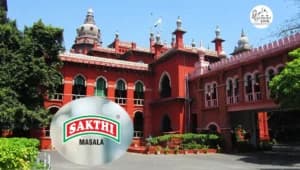In response to a query in the Rajya Sabha, Union Law Minister Arjun Ram Meghwal disclosed that out of the 715 High Court judges appointed since 2018, 551 belong to the upper caste category. This constitutes approximately 77.06% of the total appointments, leaving only 164 judges from marginalized communities, including Scheduled Castes (SCs), Scheduled Tribes (STs), Other Backward Classes (OBCs), and Minorities.
Breaking down the figures, Meghwal stated that among the 715 judges:
- 22 belong to the SC category
- 16 belong to the ST category
- 89 belong to the OBC category
- 37 belong to Minority communities
Read Also:- Delhi High Court Rules on Anti-Dumping Duties: Judicial Intervention Limited Due to Time Constraints
Government’s Stand on Social Diversity in Judiciary
The Law Minister emphasized that the Government has been consistently urging Chief Justices of High Courts to consider candidates from SC, ST, OBC, Minority groups, and Women while recommending judicial appointments. This step is intended to enhance social diversity in the higher judiciary.
Responding to an inquiry by RJD MP Manoj Kumar Jha, who sought information on the declining representation of marginalized communities in judicial appointments, the Law Minister provided further clarification.
"Appointment of Judges to the Supreme Court and High Courts is made under Articles 124, 217, and 224 of the Constitution of India, which do not provide for reservation for any caste or class of persons. Therefore, category-wise data on SC, ST, and OBC representation is not centrally maintained. However, the Government remains committed to enhancing social diversity."
Read Also:- Delhi High Court Permits MP Engineer Rashid to Attend Parliament "In-Custody"
Queries on Declining Representation in Judiciary
MP Manoj Kumar Jha also questioned whether there has been a declining trend in judicial appointments from marginalized communities in recent years. He sought details on the reasons behind this trend and asked whether the Government has taken any steps to ensure adequate representation.
In response, the Minister stated that while no constitutional provision mandates reservation in judicial appointments, the Government has introduced measures to encourage diversity. Since 2018, candidates recommended for High Court Judgeships are required to disclose their social background in a prescribed format developed in consultation with the Supreme Court.
Read Also:- No Mandatory Requirement of Graduation or Post-Graduation for Anganbadi Karyakatri: Allahabad High Court
Role of Supreme Court and High Courts in Judge Appointments
As per the Memorandum of Procedure (MoP):
- The Chief Justice of India (CJI) initiates proposals for appointing Supreme Court judges.
- The Chief Justices of respective High Courts initiate proposals for appointing High Court judges.
However, the Government has continued to push for inclusivity.
"The Government has been requesting Chief Justices of High Courts that while recommending judges, due consideration should be given to candidates from SC, ST, OBC, Minority communities, and Women, to ensure social diversity."
It was also reiterated that only candidates recommended by the Supreme Court Collegium are ultimately appointed as Judges of the Supreme Court and High Courts.
? Click here to Read Unstarred Question And Law Minister's Response














